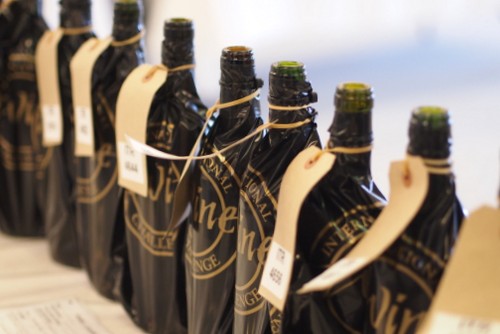
So we are four days into judging the International Wine Challenge. Now, as a panel chair, contracted for all 10 days of judging, I am biased, but I think it’s the best and biggest blind tasting competition in the world.
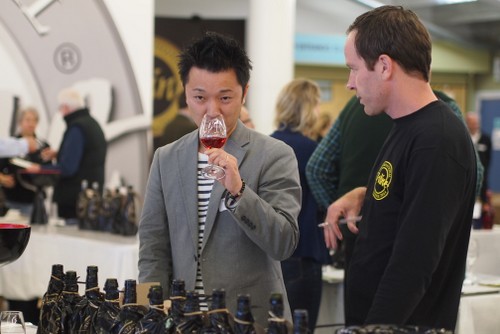
Of course, not all wines enter. But well in excess of 10 000 do (the figure is around 15 000 I believe, but the actual number is not published, because the organizers don’t want to get into a ‘mine is bigger than yours’ squabble with the main competing event), and if you tasted through the gold medal winners, you’d be pretty impressed.
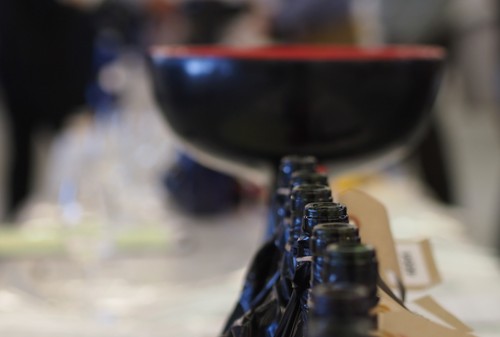
The strength of this competition is in its rigour, the quality of the judges, and the organization (the amazing IWC team have been in place for five weeks in advance of the tastings setting everything up).
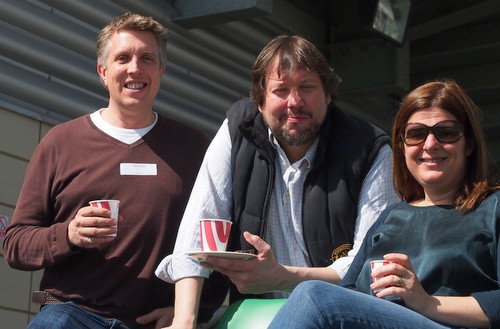
Every wine is tasted at least twice. This week we have been tasting everything, deciding whether or not a wine is worthy of a medal, and therefore entry into round two. Any wine that is cast aside by the panels is then tasted again by the co-chairs, who are able to reinstate wines that they feel have been unfairly passed over. This safety net is vital.
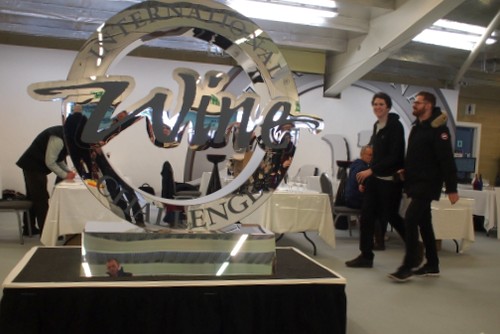
Next week, we will be tasting all the wines that got through and assigning medals, with the option of not awarding medals if we decide the wine isn’t up to scratch. The co-chairs recheck any medal assignments to make sure that judging is consistent.
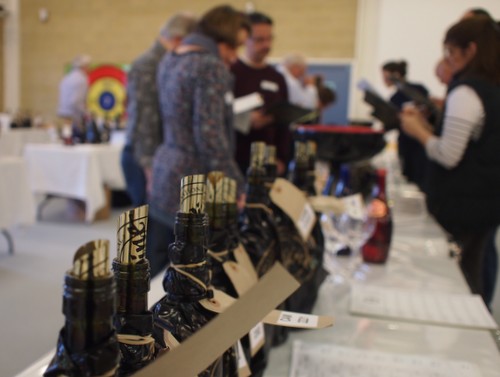
All wines are given a really good chance to show their potential, and the teams of four or five tasters are all assessed, as are the panel chairs, with a view to promoting those who perform best and getting rid of any tasters or panel chairs who aren’t up to scratch, or who don’t work well in a team.
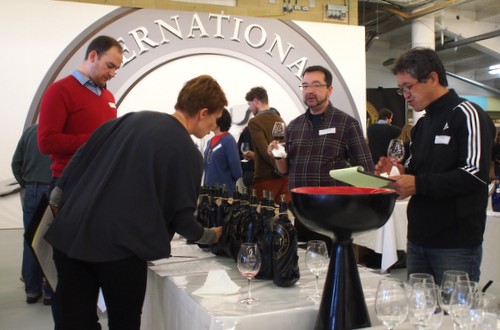
This feedback means that the quality of judges is high, and we have a nice happy family of tasters, which makes for a rewarding experience for everyone. It’s two weeks of work that I look forward to a great deal each year. This year we have a new venue: The Oval. One of the world’s great cricket grounds, and ideally suited to what we are doing.
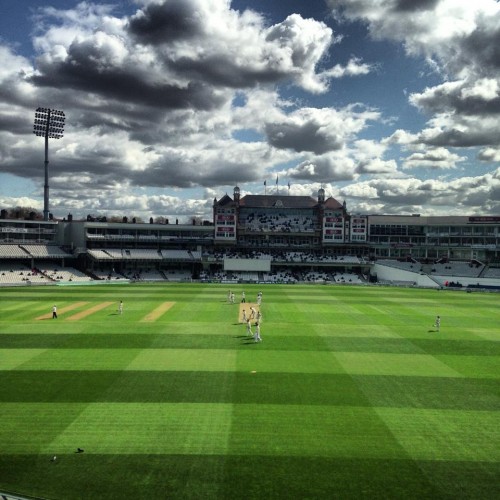



I find the Decanter awards to be reasonably reliable and honest but have never found the IWC awards helpful. For me, IWC medal winners tend to be bland, supermarket-friendly crowd pleasers with all the emphasis on oaky smoothness and over-extracted fruit and next to none on terroir or typicity. In other words, the emphasis invariably seems to be on fruit-driven accessibilty of style over authenticity.
Foolishly, I bought an IWC Gold Medal winner only a few days ago from Tesco – Botticato Valpolicella Ripasso 2011. Valpolicella Ripasso is one of my favourite wine styles but this example was a complete travesty. Flabby, synthetic and searingly over-sweet, it had obviously been confected to appeal to a mass commercial market. Really horrible but you know it didn’t really surprise me that it came with IWC’s seal of approval. Perhaps I’ve just been unlucky but over the years I’ve learned to be very sceptical of the IWC logo. Hopefully Jamie’s presence this year will shake things up a bit.
So why, every year when presenting the same wine through different labels one gets a gold medal the other nothing. The competitions are just politics you can buy your way in, everyone knows it.
I have to say, I’m in partial agreement with the first commenter, and I speak as someone who worked for Oddbins through most of the 90s when it was winning the IWC Wine Merchant of the Year award every year. Medals are essentially a marketing tool and god knows why anyone bothers to put a sticker on their bottle saying IWC Commended – if it couldn’t even manage a bronze medal then why would anyone buy it?
Surely the best must be top 100 SA Wines 🙂 guess that is the most enjoyable
Why do you think the IWC is better than any other competition? Which others have you judged on and where do they fail compared to the IWC?
Jonathan, because of the quality of the judges and the rigour.
I have judged competitions in Australia, Serbia, Buglaria, France, Hungary, South Africa and the UK. Judging is one of the things I do to make a living.
The other competitions have also had their strengths. None is on the same scale as the IWC.
The big competitor to the IWC judges a similar number of wines but in half the time, with each wine being tasted once, unless it is up for a trophy. The great strength of the IWC is the co-chairs, and the two-stage judging process. Having acted as a co-chair today, I can see the vital role that this safety net and consistency checking process plays in helping make the results more robust.
Next week when we judge the medals, we will be able to do the process so much more effectively knowing that the non-medal worthy wines have already been eliminated. Even a wine that is eliminated this week will have been tasted by a minimum of 6 people, including at least one co-chair.
No competition is perfect, of course. But competitions need to be as good as they can be.
Another IWC Gold Medal horror is the 2007 Hermitage by Cave de Tain still gracing the shelves of Tesco and Waitrose. I couldn’t believe how poor it was. A real waste and betrayal of the unique terroir of the northern Rhone.
I believe you tried this one yourself Jamie not so long ago and described it as “rubbish” because it was horribly over-oaked and had all its authenticity and sense of place removed in an effort to make it more international in style.
Could you ask the powers that be at IWC why they are awarding gold medals to such disappointing wines? I realize you can’t rock the boat too much given that you are working for them but it annoys me that they say “quality assured” on the IWC stickers when it clearly isn’t.
CotonouPro – that’s a pretty sweeping accusation – on what do you base it?
Paul Dove – it’s not the powers that be that award the medals, it’s the judging panels. What does one say to them?
I judge at both IWC and Decanter, and what is not generally understood is that the IWC does not take into consideration the price of the wine. Decanter does, and asks judges to award medals in a value context. As such they are quite different. Producers would be better placed entering their ‘top wine’ in IWC, and their lesser ‘value for money’ wines at Decanter
I must agree that the results of wines, be it the own or from wineries we know – that produce surely not bronze level wines have been mixed at best from the IWC. I don’t know how many wineries still send in their wines to the IWC from austria, but i guess the number has been declining over the years.
I’ts really questionable why really delicate, exceptional wines rank so low on the IWC – while a lot of mediocre bulk wines that end up in retail chain shelves rank rather high. I mean with all due respect, but at 6-7 Pounds retail value, from a wineyard manager and wine producer side of things it is neigh to impossible to create something unique, that should stand out among the wines produced in the worlds. At best you get a rather softed down mass produced wine that has no edges and no identity.
But whatever, just for that reason we stopped sending in wines, as it is pointless for a handcraft wine producer to compete under such taste prepositions.
I agree. Applying medals to these wines is a waste of time. I’ve tried numerous wines with medals, including, gold etc and found them invariably bland and boring. It’s clearly a marketing tool for wine companies. Stick a medal label on it and it must be better than wines without medals. Rubbish! I avoid wines with medals on them; whatever the competition.